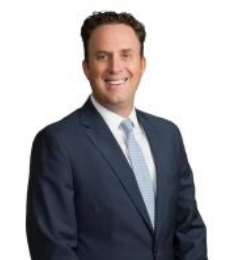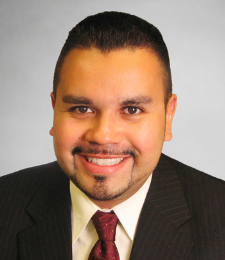I’m thrilled to announce that Bedard Law Group is the new sponsor for the Compliance Digest. Bedard Law Group, P.C. – Compliance Support – Defense Litigation – Nationwide Complaint Management – Turnkey Speech Analytics. And Our New BLG360 Program – Your Low Monthly Retainer Compliance Solution. Visit www.bedardlawgroup.com, email John H. Bedard, Jr., or call (678) 253-1871.

Every week, AccountsRecovery.net brings you the most important news in the industry. But, with compliance-related articles, context is king. That’s why the brightest and most knowledgable compliance experts are sought to offer their perspectives and insights into the most important news of the day. Read on to hear what the experts have to say this week.
Budget Shortfall Created by COVID-19 Will Cost California its CFPB: Report
The economic toll of the coronavirus pandemic is not just being felt by individuals. Branches of government at all levels are now starting to feel the impact of lost revenue and increased expenses that have resulted from the crisis and are starting to scale back previously announced plans to make up for the shortfalls, including plans that would have impacted the accounts receivable management industry. More details here.

WHAT THIS MEANS, FROM LAUREN VALENZUELA OF PERFORMANT: COVID-19 is not slowing down California’s plan for its own state version of the federal Consumer Financial Protection Bureau (CFPB). On May 14, the Governor of California released a Revised Budget Summary to the State’s 2020-21 budget. While many anticipated California’s deficit would cancel the Governor’s plans for creating a state version of the CFPB, the revision shows the Governor’s plans are forging ahead, albeit with a heightened sense of purpose because of COVID-19. The revision states, “[t]he May Revision sustains the Governor’s Budget proposal for $10.2 million Financial Protection Fund and 44 positions in 2020-21, growing to $19.3 million and 90 positions ongoing in 2022-23, to revamp the Department of Business Oversight (DBO) as the Department of Financial Protection and Innovation, and empower the Department to provide consumers greater protection from predatory practices while facilitating innovation and ensuring a level playing field for all companies operating responsibly in California.” The revision justifies keeping the expenditure, continuing to cite the perceived “retreat” by the CFPB and other federal agencies, and the “fragmented oversight of financial services [that] has left consumers vulnerable to abuse. These problems are further exacerbated in times of crisis, including the ongoing COVID-19 pandemic.”
So, there must be give and take – after all, there is still a deficit in California. From the January proposed budget, the revised budget shows a planned decrease of 10.14% in higher education expenditures, a planned decrease of 19.90% for K thru 12 education expenditures, and a 28.75% planned decrease in general government expenditures (e.g., spending to ensure peace officer competence, reasonable public utility rates, food and agricultural issues, services to veterans, etc.) among others.
While I recognize California’s aspirations to “cement California’s consumer protection leadership,” the perception that the CFPB and other federal agencies have “retreated” is arguably misplaced to a degree. When the CFPB was in its infancy, it had to establish itself and aggressively assert its oversight authority. In the last ten years since its beginnings, the CFPB’s oversight is still there, however enforcement actions have tailed off for good reason (and perhaps not for a lack of not focusing on consumer protections). For example, regulated entities, such as debt collection agencies, have improved their practices and calibrated with the CFPB’s expectations. Lessons have been learned and applied from the CFPB’s past enforcement actions, supervisory highlights, and examinations. Simply put, it makes sense that there are less enforcement actions today – because industries have adapted. As with all industries, there are a few bad apples – but there are also a whole lot of good apples too.
COVID-19 is not slowing down California’s plans for its own state version of the CFPB, however, California’s version still has a way to go. For example, funding and positions for the new department are contingent upon California’s legislature “passing the necessary statutory language to implement the new program” (that statutory framework being the California Consumer Financial Protection Law).
It is clear consumer protection is a priority for California’s Governor, however, when the State is reducing expenditures for education, and has many other pressing issues caused by COVID-19, it begs the question if now is the really the right time for such an endeavor for the state when you have a federal watchdog, the State Attorney General, and civil actions to regulate debt collection practices (not to mention, other states already providing oversight and enforcement for those agencies who collect nationally). Perhaps a better use of this time would be to learn more about the industry, conduct focus groups, facilitate meaningful dialogue between industry and consumer protection advocates, and further study other states’ models for oversight. These activities would cost a lot less and help the State create something truly unique as opposed to a replica of the CFPB.
THE COMPLIANCE DIGEST IS SPONSORED BY:

Report Details How Collection Suits are ‘Transforming’ State Courts Nationwide
The number of debt collection lawsuits have grown to “dominate” state court dockets across the country, and represent the most common type of case in nine of 12 states for which data is available, according to a report issued yesterday by the Pew Charitable Trusts, a non-profit public policy organization. More details here.

WHAT THIS MEANS, FROM JONATHAN ROBBIN OF J. ROBBIN LAW: The Pew Charitable Trusts’ report portraying the sharp rise in debt collection lawsuits, will likely cause lawmakers to take steps making the requirements to obtain a resolution in debt collection lawsuits more onerous. While legislators are actively enacting wide-ranging legislation to protect individuals affected by the current economic crisis, it is very likely that the debts sought to be collected were incurred prior to the COVID-19 crisis. Notwithstanding, collection suits will surely be delayed and courts will provide added protections to consumers regardless of when the debt originated. This is already being seen in other industries such as foreclosure litigation with moratoriums and court ordered adjournments. As a result, it will be imperative going forward to attempt to work with consumers to resolve outstanding debts without the court system when possible, as debt collection lawsuits will face heightened scrutiny from the courts for the foreseeable future.
Supreme Court Considers Viability of TCPA During Arguments on Gov’t Debt Exemption
Could the entire Telephone Consumer Protection Act be on the chopping block following yesterday’s hearing before the Supreme Court? The idea may be less far-fetched today than it seemed yesterday, before the Justices heard arguments via telephone and before the flush heard around the world. One thing does appear certain when looking at the questions from the Justices, and that is that the days are numbered for the exemption that Congress put into place in 2015 that allowed an automated telephone dialing system to be used when making collection calls for debts that are owed to the federal government. More details here.

WHAT THIS MEANS, FROM DAVID KAMINSKI OF CARLSON & MESSER: The TCPA’s exception for calls placed to collect government debt is quite obviously “content-based”, and will likely be held to be deemed unconstitutional by the Supreme Court based on the tenor of the Justices comments during the May 6, 2020 oral argument in the Barr v. American Association of Political Consultants case. However, the bigger question is whether the Supreme Court will strike only the government debt exception, or invalidate the entire TCPA.
Typically, if a statute is held to be unconstitutional in any respect, usually the entire statute falls. But here, as the Supreme Court Justices noted at oral argument, the TCPA is a “very popular” consumer protection statute (based on the number of complaints filed) that was in effect for nearly 25 years before the government debt exception was added. They focused on the number of years between the addition of the government debt exception (2015) and the enactment of the TCPA (1991) and the fact the TCPA has withstood countless constitutional challenges before the 2015 amendment. The Justices also focused on the ramifications of striking the entire TCPA statute and a proliferation of unfettered robocalls. That has been in the back of the minds of the Justices well before this oral argument took place.
Regardless, it appears unlikely that the Supreme Court will strike the TCPA in its entirety, even if it holds that the government debt exception is unconstitutional. There are fairly strong legal arguments to support this outcome. The most important is the “severability” clause built into the TCPA. 47 U.S.C. § 608 provides: “If any provision of this chapter or the application thereof to any person or circumstance is held invalid, the remainder of the chapter and the application of such provision to other persons or circumstances shall not be affected thereby.” Can the Supreme Court “sever” the government debt exception from the TCPA statute so that the rest of the statute stands? The Supreme Court will likely rely on this statutory severability clause to maintain the status quo and keep the remainder of the TCPA in place. If so, we will return to the pre-2015 version of the TCPA, which seems to be the most likely scenario. The Supreme Court will issue its decision this term, i.e., by the end of June 2020. Stay closely tuned!!
State AGs Call For Carriers to Beef Up Efforts to Catch Illegal Robocallers
Every state attorney general, along with the AGs from Puerto Rico and American Samoa are “contemplat[ing]” issuing more subpoenas and civil investigative demand letters to help trace the origins of illegal robocallers, according to a letter that was sent yesterday to an association representing wireless phone carriers. More details here.

WHAT THIS MEANS, FROM ETHAN OSTROFF OF TROUTMAN SANDERS: The timing of this letter from all of the State Attorneys General to USTelecom is more than salient — it is tip-off that State AGs are gearing up to bring enforcement actions in a time that has seen States’ budgets decimated. Recently, State AGs have been laser-focused on issues like price-gouging and scams related to the COVID-19 pandemic. While the illegal robocalls have been a thorn in everyone’s side for a while, there is renewed political commitment on the State and Federal levels to regulate and enforce in this space.
State AGs are now laying the foundation for future enforcement actions with their encouragement of carriers to gather a wider variety of call data and to analyze this data to pinpoint the sources of and participants in illegal robocall campaigns. Targeting these illegal robocalls is a win-win scenario for State AGs — they get to tout going after something everyone disdains while also leveraging enforcement actions to bring in funds to cash-strapped State budgets in a time where revenue is hard to come by due to COVID-19. In the near future, expect State AGs to exercise their authority to enforce federal and state privacy laws, including the TCPA’s prohibition on placing telemarketing solicitation calls to consumers who were registered with the National Do Not Call Registry, and to continue laying the foundation by issuing subpoenas and CIDs to groups like the Industry Traceback Group to further the collection of information.
Executive Order Protects Minnesotans From Garnishments
The governor of Minnesota has issued an executive order that protects the economic stimulus funds received by individuals from being garnished except as part of a Domestic Support obligation, but also going a step further and prohibiting the service of a garnishment summons on individuals and suspending the permission of creditors to obtain information about an individuals assets and earnings. More details here.

WHAT THIS MEANS, FROM MICHAEL KLUTHO OF BASSFORD REMELE: One of Minnesota’s latest Executive Orders (EO) most certainly impacts garnishments. Let’s look at what the EO actually says in this regard. The EO provides, in part:
“Beginning immediately [May 4, 2020], the provisions in Minnesota Statutes 2019, Chapters 571, which permit service of a garnishment summons on a consumer debtor or consumer garnishee, are suspended.”
Clearly new garnishment summons cannot be issued. But what about existing garnishments that were in effect before this EO? That is, what about garnishments that had already captured funds before May 4? Securing funds that were frozen before May 4 requires a writ of execution levy on the garnishee. That writ of execution flows from Minnesota Statute, Chapter 550. The only provision of Chapter 550 addressed in the EO was as follows:
“Beginning immediately, the provisions of Minnesota Statutes 2019, section 550.011, which permits a judgment creditor to obtain information about a consumer debtor’s assets, liabilities, and personal earnings, are suspended.”
Hence, the latest EO would appear to allow an execution of funds captured prior to the effective date of the EO [May 4]. Perhaps that was not the intent of the latest EO, but as they say – “words do matter.” Be careful in any event as a violation of this latest EO is punishable by a $25,000 per violation fine. Perhaps look to the spirit of the EO, rather than the letter of the EO? And to be sure, the EO does confirm that no new garnishments can be issued for the time being.
House Dems Still Pushing Debt Collection Moratorium
The Democrats on the House Financial Services Committee are once again pushing their proposed package of bills aimed at responding to the coronavirus pandemic, except this time, they are touting the bill that would place a moratorium on debt collection activities for the duration of the pandemic. More details here.
Senate Dems Introduce Stimulus Bill; Funds Would be Protected From Garnishment
A trio of Senate Democrats unveiled a bill on Friday that would provide individuals with a monthly stipend of $2,000 — which would be protected from garnishment by debt collectors — for the duration of the coronavirus pandemic, because the $1,200 that was already made available is not enough to help individuals who have been impacted by the crisis. More details here.
House Unveils $3T Stimulus Bill; Offers Forbearance on All Debts, Collectors Can Get Loans to Cover Losses
Speaker Nancy Pelosi yesterday unveiled a $3 trillion stimulus package that would give individuals the right to obtain a forbearance on any debt simply by asking for it, while also providing debt collectors with the opportunity to obtain “long-term, low-cost” loans to cover any losses caused by the forbearances. More details here.

WHAT THIS MEANS, FROM JOANN NEEDLEMAN OF CLARK HILL: Since the beginning of the COVID-19 crisis, House and Senate Democrats have put forth proposals and priorities for coronavirus relief, which included debt collection moratoriums. Those proposals did not make it into the CARES Act. On Tuesday, the Democrats unveiled the: The “Health and Economic Recovery Omnibus Emergency Solutions Act” or “HEROES Act.” The official summary of the bill calls it “transformative legislation to meet the challenges of the coronavirus pandemic, increase aid for state, local and tribal governments,” to extend unemployment insurance, and to provide direct aid to Americans.
For the consumer financial services industry — particularly the credit reporting and debt collection sectors — the HEROES Act looks to amend certain the FDCPA and seeks additional moratorium on debt collection during the COVID-19 crisis and 120 days thereafter.
Some highlights of the legislation are as follows:
- Suspension of negative consumer credit reporting during the COVID19 pandemic, as well as during other declared major disasters, and for 120 days thereafter. This includes medical debt;
- Temporary moratorium on consumer debt collection during this COVID-19 crisis and for 120 days thereafter (covered period);
- Amending the Fair Debt Collection Practices Act (FDCPA) to include creditors under these provisions during the covered period;
- Prohibited debt collection lawsuits, enforcement of security interests, termination of utilities and threatening to do any of these activities.
- The FDCPA would be amended to require debt collectors to extend the time period for the repayment of a debt;
- Upon request from the consumer, require debt collectors to forbearance programs if consumer can attestation to financial hardship, either directly or indirectly related to COVID-19. The consumer is not required to provide documentation to support hardship; and
- The Federal Reserve will establish a credit facility to make low-cost and long-term loans available to debt collectors to temporarily compensate them for the financial losses caused by the forbearance program.
The HEROES Act also includes provisions that would require Treasury to pay up to $10,000 in debt relief for a borrower’s private student loan. Finally the legislation proposes to amend the FDCPA to include small businesses who would receive the same protections, moratoriums and forbearances as consumers during the covered period.
The proposal to offer low-cost loans to the debt collection industry will need to be carefully reviewed. Loans will only be approved if there are “documented losses as the result of a forbearance” but how do you document a debt collection loss? What happens if the consumer never pays or files bankruptcy? Whether this proposal is a “bail out” of the debt collection industry remains to be seen. What is known is that moratoriums on debt collection harm the consumer as much as it does the debt collector. Rather than foreclosing opportunities to communicate and provide opportunities for debt resolution, Congress should be encouraging a more open dialogue with consumers.
Tenn. Supreme Court Rules Hospitals Can Be Sued Under State Consumer Protection Act
Hospitals and healthcare providers in Tennessee must comply with the Tennessee Consumer Protection Act, the state’s Supreme Court ruled on Friday, overturning decisions at two levels of the state’s judicial system. More details here.

WHAT THIS MEANS, FROM CARLOS ORTIZ OF HINSHAW CULBERTSON: In an unanimous decision, the Tennessee Supreme Court held that the state’s Consumer Protection Act applies to health care providers when they are acting in their business capacity, including, but not limited to, advertising, billing, or collections. This case arose out of liens that health care providers filed against claims that their patients had for personal injuries that the health care providers treated. Interestingly, Tennessee’s Hospital Lien Act permits patients to contest a lien or the reasonableness of the charges. This begs the question why the court believed the Consumer Protection Act should apply under the circumstances of this case when the state’s Hospital Lien Act appears to have already provided patients with a remedy. By holding that its state’s Consumer Protection Act applies to health care providers when they act in their business capacity, the court may have opened the door to the same type of abuse of statute that courts have noted under the FDCPA. The Tennessee Consumer Protection Act allows for treble damages when certain conditions are met, and it permits a court to award a patient attorney’s fees and costs. The unintended consequence from this may be that patients in Tennessee will have to pay more for medical care as providers seek to offset the increased risk to them from now being subject to the Act.
Plaintiff Argues Against Stay Request in TCPA Class-Action Pending Outcome of Supreme Court Case
As the Supreme Court gets ready to hear arguments remotely tomorrow in a Telephone Consumer Protection Act case that could re-shape the law, a plaintiff in a separate action related to calls made to collect on a debt is urging a federal judge not to wait to hear what the Supreme Court has to say as she opposes a defendant’s motion to stay that case. More details here.

WHAT THIS MEANS, FROM LAUREN BURNETTE OF MESSER STRICKLER: Unfortunately for the Plaintiff, oral argument in Barr revealed that a stay may be even more appropriate now than it was when Plaintiff filed her opposition. During argument, certain Justices seemed to acknowledge that striking down the TCPA in its entirety may be a more appropriate remedy than severing the government-backed exemption while leaving the remainder of the statute intact. Defendants seeking stays of TCPA claims pending the Court’s ruling in Barr may be able to strengthen their arguments by referring to the Justices’ concerns regarding severability as an imperfect solution, thus leaving striking the entire TCPA as one of few options remaining.
I’m thrilled to announce that Bedard Law Group is the new sponsor for the Compliance Digest. Bedard Law Group, P.C. – Compliance Support – Defense Litigation – Nationwide Complaint Management – Turnkey Speech Analytics. And Our New BLG360 Program – Your Low Monthly Retainer Compliance Solution. Visit www.bedardlawgroup.com, email John H. Bedard, Jr., or call (678) 253-1871.









